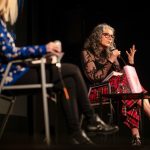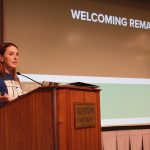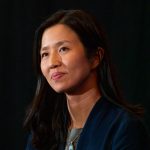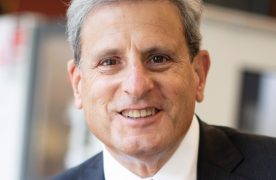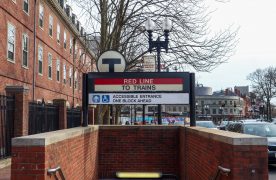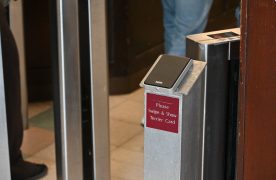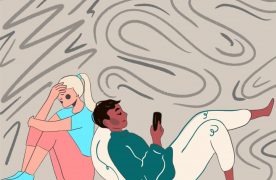Robin DiAngelo, author of New York Times bestseller books “Nice Racism” and “White Fragility,” shared her motivations for writing about racial and social injustice in a conversation with the Boston Public Library President David Leonard on Oct. 17 at the BPL.
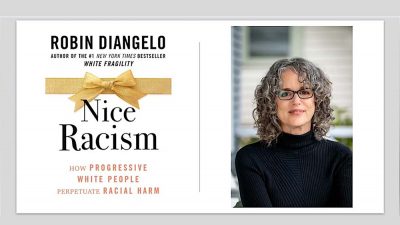
“In this country, if you have not devoted years of sustained study, struggle and focus on this topic, you just simply cannot have an informed opinion on racism as a white person,” DiAngelo said during the talk. “So we have to start with a humility around that.”
DiAngelo, an affiliate associate professor of education at the University of Washington, said like most white people, she lived a “segregated life” and was “racially illiterate.”
When she took a job working with Washington state to provide the state’s employees with federally-mandated diversity training, DiAngelo said, she realized how she and many others who claimed not to be “racists” will expect people of color to teach them about racism.
When the people of color in her group affirmed that wasn’t their job, DiAngelo said she remembered feeling “put-out” wondering, “how are we supposed to know if you don’t teach us?”
“I had no idea what racism was… I was not self-aware,” DiAngelo said. “I was likely to be very defensive about any feedback to the contrary.”
After going out in the field and witnessing the pain experienced by the few people of color in rooms of mostly white people, DiAngelo said it became “predictable” and “almost like a script.” The hostility was often “off the charts,” DiAngelo said.
“We were often in 100 percent white rooms, with white people complaining bitterly about not being able to get jobs anymore because of affirmative action, and you’re looking around going, ‘Where are they? [The people] that are taking your jobs,’” DiAngelo said. “I just got better and better at articulating how we pull that off, how we live such segregated lives and we insist that race has no meaning.”
DiAngelo said the phrase “white fragility” is not benign — it’s “fragile like a bomb is fragile,” she said. It carries the “weight of institutional power and control.”.
“It’s dangerous when we have that meltdown, when we get upset and defensive. Often whoever caused that defensiveness, things get worse for them, not better,” DiAngelo said. “I find it to be a really effective form of everyday white social control.”
Audience member Janice Testagrossa said after reading “White Fragility,” it revealed how oblivious she was.
“I’m the person that she’s describing as totally unaware,” Testagrossa said. “So it’s been a journey now. It’s been a mission.”
Gianna Gifford, the BPL chief of adult library services, said she was intrigued by DiAngelo’s book “Nice Racism.”
“There’s a certain assumption we make that we’re a very educated city, and therefore as an educated city, we must not be racist,” Gifford said of the City of Boston. “We think perhaps we’re more progressive and therefore we’re more knowledgeable.”
Linda Mason, the president of the Montachusett Martin Luther King Coalition, said they used “White Fragility” as “almost a Bible reference” for their workshops. The book really opened her eyes, she said, and she now has more understanding on why white people may be afraid to talk about racism.
DiAngelo said most people still think of racism as “individual, conscious and intentional.” Like most white people, she said, she was taught the same.
“It usually protects the system of racism because it pretty much exempts everybody,” DiAngelo said. “I’m really clear that I have perpetrated racism across my life, and I’m also really clear that never once was conscious or intentional, it caused harm nonetheless.”
In an interview, DiAngelo said she hopes the white people in the audience realized they’re not “exempt” or “outside” of the issue.
“We’re all part of this problem called systemic racism.” DiAngelo said. “We all have a role to play and I hope that they feel reinspired to play that role.

